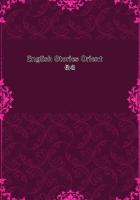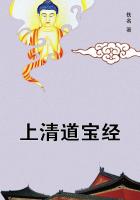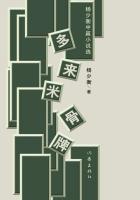The Jacobite enthusiasm of the eighteenth century,particularly during the rebellion of 1745,afforded a theme,perhaps the finest that could be selected for fictitious composition,founded upon real or probable incident.This civil war and its remarkable events were remembered by the existing generation without any degree of the bitterness of spirit which seldom fails to attend internal dissension.The Highlanders,who formed the principal strength of Charles Edward's army,were an ancient and high-spirited race,peculiar in their habits of war and of peace,brave to romance,and exhibiting a character turning upon points more adapted to poetry than to the prose of real life.Their prince,young,valiant,patient of fatigue,and despising danger,heading his army on foot in the most toilsome marches,and defeating a regular force in three battles--all these were circumstances fascinating to the imagination,and might well be supposed to seduce young and enthusiastic minds to the cause in which they were found united,although wisdom and reason frowned upon the enterprise.
The adventurous prince,as is well known,proved to be one of those personages who distinguish themselves during some single and extraordinarily brilliant period of their lives,like the course of a shooting-star,at which men wonder,as well on account of the briefness,as the brilliancy of its splendour.Along tract of darkness overshadowed the subsequent life of a man who,in his youth,showed himself so capable of great undertakings;and,without the painful task of tracing his course farther,we may say the latter pursuits and habits of this unhappy prince are those painfully evincing a broken heart,which seeks refuge from its own thoughts in sordid enjoyments.
Still,however,it was long ere Charles Edward appeared to be,perhaps it was long ere he altogether became,so much degraded from his original self;as he enjoyed for a time the lustre attending the progress and termination of his enterprise.Those who thought they discerned in his subsequent conduct an insensibility to the distresses of his followers,coupled with that egotistical attention to his own interests which has been often attributed to the Stuart family,and which is the natural effect of the principles of divine right in which they were brought up,were now generally considered as dissatisfied and splenetic persons,who,displeased with the issue of their adventure and finding themselves involved in the ruins of a falling cause,indulged themselves in undeserved reproaches against their leader.Indeed,such censures were by no means frequent among those of his followers who,if what was alleged had been just,had the best right to complain.Far the greater number of those unfortunate gentlemen suffered with the most dignified patience,and were either too proud to take notice of ill-treatment an the part of their prince,or so prudent as to be aware their complaints would meet with little sympathy from the world.It may be added,that the greater part of the banished Jacobites,and those of high rank and consequence,were not much within reach of the influence of the prince's character and conduct,whether well regulated or otherwise.
In the meantime that great Jacobite conspiracy,of which the insurrection of 1745-6was but a small part precipitated into action on the failure of a far more general scheme,was resumed and again put into motion by the Jacobites of England,whose force had never been broken,as they had prudently avoided bringing it into the field.The surprising effect which had been produced by small means,in 1745-6,animated their hopes for more important successes,when the whole nonjuring interest of Britain,identified as it then was with great part of the landed gentlemen,should come forward to finish what had been gallantly attempted by a few Highland chiefs.
It is probable,indeed,that the Jacobites of the day were incapable of considering that the very small scale on which the effort was made,was in one great measure the cause of its unexpected success.The remarkable speed with which the insurgents marched,the singularly good discipline which they preserved,the union and unanimity which for some time animated their councils,were all in a considerable degree produced by the smallness of their numbers.Notwithstanding the discomfiture of Charles Edward,the nonjurors of the period long continued to nurse unlawful schemes,and to drink treasonable toasts,until age stole upon them.Another generation arose,who did not share the sentiments which they cherished;and at length the sparkles of disaffection,which had long smouldered,but had never been heated enough to burst into actual flame,became entirely extinguished.But in proportion as the political enthusiasm died gradually away among men of ordinary temperament,it influenced those of warm imaginations and weak understandings,and hence wild schemes were formed,as desperate as they were adventurous.
Thus a young Scottishman of rank is said to have stooped so low as to plot the surprisal of St.James's Palace,and the assassination of the royal family.While these ill-digested and desperate conspiracies were agitated among the few Jacobites who still adhered with more obstinacy to their purpose,there is no question but that other plots might have been brought to an open explosion,had it not suited the policy of Sir Robert Walpole rather to prevent or disable the conspirators in their projects,than to promulgate the tale of danger,which might thus have been believed to be more widely diffused than was really the case.
In one instance alone this very prudential and humane line of conduct was departed from,and the event seemed to confirm the policy of the general course.Doctor Archibald Cameron,brother of the celebrated Donald Cameron of Lochiel,attainted for the rebellion of 1745,was found by a party of soldiers lurking with a comrade in the wilds of Loch Katrine five or six years after the battle of Culloden,and was there seized.There were circumstances in his case,so far as was made known to the public,which attracted much compassion,and gave to the judicial proceedings against him an appearance of cold-blooded revenge on the part of government;and the following argument of a zealous Jacobite in his favour,was received as conclusive by Dr.Johnson and other persons who might pretend to impartiality.Dr.Cameron had never borne arms,although engaged in the Rebellion,but used his medical skill for the service,indifferently,of the wounded of both parties.His return to Scotland was ascribed exclusively to family affairs.His behaviour at the bar was decent,firm,and respectful.His wife threw herself,on three different occasions,before George II and the members of his family,was rudely repulsed from their presence,and at length placed,it was said,in the same prison with her husband,and confined with unmanly severity.
Dr.Cameron was finally executed with all the severities of the law of treason;and his death remains in popular estimation a dark blot upon the memory of George II,being almost publicly imputed to a mean and personal hatred of Donald Cameron of Lochiel,the sufferer's heroic brother.
Yet the fact was that whether the execution of Archibald Cameron was political or otherwise,it might certainly have been justified,had the king's ministers so pleased,upon reasons of a public nature.The unfortunate sufferer had not come to the Highlands solely upon his private affairs,as was the general belief;but it was not judged prudent by the English ministry to let it be generally known that he came to inquire about a considerable sum of money which had been remitted from France to the friends of the exiled family.He had also a commission to hold intercourse with the well-known M'Pherson of Cluny,chief of the clan Vourich,whom the Chevalier had left behind at his departure from Scotland in 1746,and who remained during ten years of proscription and danger,skulking from place to place in the Highlands,and maintaining an uninterrupted correspondence between Charles and his friends.That Dr.Cameron should have held a commission to assist this chief in raking together the dispersed embers of disaffection,is in itself sufficiently natural,and,considering his political principles,in no respect dishonourable to his memory.But neither ought it to be imputed to George II that he suffered the laws to be enforced against a person taken in the act of breaking them.When he lost his hazardous game,Dr.Cameron only paid the forfeit which he must have calculated upon.The ministers,however,thought it proper to leave Dr.Cameron's new schemes in concealment,lest,by divulging them,they had indicated the channel of communication which,it is now well known,they possessed to all the plots of Charles Edward.But it was equally ill advised and ungenerous to sacrifice the character of the king to the policy of the administration.Both points might have been gained by sparing the life of Dr.Cameron after conviction,and limiting his punishment to perpetual exile.
These repeated and successive Jacobite plots rose and burst like bubbles on a fountain;and one of them,at least,the Chevalier judged of importance enough to induce him to risk himself within the dangerous precincts of the British capital.This appears from Dr.King's ANECDOTES OF HIS OWN TIMES.
'September,1750.--I received a note from my Lady Primrose,who desired to see me immediately.As soon as I waited on her,she led me into her dressing-room,and presented me to--'[the Chevalier,doubtless].'If I was surprised to find him there,Iwas still more astonished when he acquainted me with the motives which had induced him to hazard a journey to England at this juncture.The impatience of his friends who were in exile had formed a scheme which was impracticable;but although it had been as feasible as they had represented it to him,yet no preparation had been made,nor was anything ready to carry it into execution.
He was soon convinced that he had been deceived;and,therefore,after a stay in London of five days only,he returned to the place from whence he came.'Dr.King was in 1750a keen Jacobite,as may be inferred from the visit made by him to the prince under such circumstances,and from his being one of that unfortunate person's chosen correspondents.He,as well as other men of sense and observation,began to despair of ****** their fortune in the party which they had chosen.It was indeed sufficiently dangerous;for,during the short visit just described,one of Dr.King's servants remarked the stranger's likeness to Prince Charles,whom he recognized from the common busts.
The occasion taken for breaking up the Stuart interest we shall tell in Dr.King's own words:--'When he (Charles Edward)was in Scotland,he had a mistress whose name was Walkinshaw,and whose sister was at that time,and is still,housekeeper at Leicester House.Some years after he was released from his prison,and conducted out of France,he sent for this girl,who soon acquired such a dominion over him,that she was acquainted with all his schemes,and trusted with his most secret correspondence.As soon as this was known in England,all those persons of distinction who were attached to him were greatly alarmed:they imagined that this wench had been placed in his family by the English ministers;and,considering her sister's situation,they seemed to have some ground for their suspicion;wherefore,they dispatched a gentleman to Paris,where the prince then was,who had instructions to insist that Mrs.Walkinshaw should be removed to a convent for a certain term;but her gallant absolutely refused to comply with this demand;and although Mr.M'Namara,the gentleman who was sent to him,who has a natural eloquence and an excellent understanding,urged the most cogent reasons,and used all the arts of persuasion,to induce him to part with his mistress,and even proceeded so far as to assure him,according to his instructions,that an immediate interruption of all correspondence with his most powerful friends in England,and,in short,that the ruin of his interest,which was now daily increasing,would be the infallible consequence of his refusal;yet he continued inflexible,and all M'Namara's entreaties and remonstrances were ineffectual.M'Namara stayed in Paris some days beyond the time prescribed him,endeavouring to reason the prince into a better temper;but finding him obstinately persevere in his first answer,he took his leave with concern and indignation,saying,as he passed out,"What has your family done,sir,thus to draw down the vengeance of Heaven on every branch of it,through so many ages?"It is worthy of remark,that in all the conferences which M'Namara had with the prince on this occasion,the latter declared that it was not a violent passion,or indeed any particular regard,which attached him to Mrs.Walkinshaw and that he could see her removed from him without any concern;but he would not receive directions,in respect to his private conduct,from any man alive.When M'Namara returned to London,and reported the prince's answer to the gentlemen who had employed him,they were astonished and confounded.However,they soon resolved on the measures which they were to pursue for the future,and determined no longer to serve a man who could not be persuaded to serve himself,and chose rather to endanger the lives of his best and most faithful friends,than part with an harlot,whom,as he often declared,he neither loved nor esteemed.'
From this anecdote,the general truth of which is indubitable,the principal fault of Charles Edward's temper is sufficiently obvious.It was a high sense of his own importance,and an obstinate adherence to what he had once determined on--qualities which,if he had succeeded in his bold attempt,gave the nation little room to hope that he would have been found free from the love of prerogative and desire of arbitrary power,which characterized his unhappy grandfather.He gave a notable instance how far this was the leading feature of his character,when,for no reasonable cause that can be assigned,he placed his own single will in opposition to the necessities of France,which,in order to purchase a peace become necessary to the kingdom,was reduced to gratify Britain by prohibiting the residence of Charles within any part of the French dominions.It was in vain that France endeavoured to lessen the disgrace of this step by ****** the most flattering offers,in hopes to induce the prince of himself to anticipate this disagreeable alternative,which,if seriously enforced,as it was likely to be,he had no means whatever of resisting,by leaving the kingdom as of his own free will.Inspired,however,by the spirit of hereditary obstinacy,Charles preferred a useless resistance to a dignified submission,and,by a series of idle bravadoes,laid the French court under the necessity of arresting their late ally,and sending him to close confinement in the Bastille,from which he was afterwards sent out of the French dominions,much in the manner in which a convict is transported to the place of his destination.
In addition to these repeated instances of a rash and inflexible temper,Dr.King also adds faults alleged to belong to the prince's character,of a kind less consonant with his noble birth and high pretensions.He is said by this author to have been avaricious,or parsimonious at least,to such a degree of meanness,as to fail,even when he had ample means,in relieving the sufferers who had lost their fortune,and sacrificed all in his ill-fated attempt.[The approach is thus expressed by Dr.
King,who brings the charge:--'But the most odious part of his character is his love of money,a vice which I do not remember to have been imputed by our historians to any of his ancestors,and is the certain index of a base and little mind.I know it may be urged in his vindication,that a prince in exile ought to be an economist.And so he ought;but,nevertheless,his purse should be always open as long as there is anything in it,to relieve the necessities of his friends and adherents.King Charles II,during his banishment,would have shared the last pistole in his pocket with his little family.But I have known this gentleman,with two thousand louis-d'ors in his strong-box,pretend he was in great distress,and borrow money from a lady in Paris who was not in affluent circumstances.His most faithful servants,who had closely attended him in all his difficulties,were ill rewarded.'--King's MEMOIRS.]We must receive,however,with some degree of jealousy what is said by Dr.King on this subject,recollecting that he had left at least,if he did not desert,the standard of the unfortunate prince,and was not therefore a person who was likely to form the fairest estimate of his virtues and faults.We must also remember that if the exiled prince gave little,he had but little to give,especially considering how late he nourished the scheme of another expedition to Scotland,for which he was long endeavouring to hoard money.
The case,also,of Charles Edward must be allowed to have been a difficult one.He had to satisfy numerous persons,who,having lost their all in his cause,had,with that all,seen the extinction of hopes which they accounted nearly as good as certainties;some of these were perhaps clamorous in their applications,and certainly ill pleased with their want of success.Other parts of the Chevalier's conduct may have afforded grounds for charging him with coldness to the sufferings of his devoted followers.One of these was a sentiment which has nothing in it that is generous,but it was certainly a principle in which the young prince was trained,and which may be too probably denominated peculiar to his family,educated in all the high notions of passive obedience and non-resistance.If the unhappy prince gave implicit faith to the professions of statesmen holding such notions,which is implied by his whole conduct.















